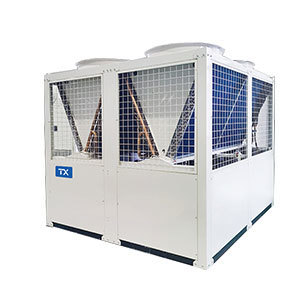Exploring the Benefits and Functionality of Modular Chiller Systems

Modular chiller systems represent a significant evolution in the field of industrial refrigeration, especially within the domain of cooling solutions. These systems are designed with flexibility and scalability in mind, making them an ideal choice for various industrial applications. A modular chiller system consists of multiple chiller units that can be linked together to achieve the desired cooling capacity. This modular approach allows for easy expansion, maintenance, and customization to meet specific cooling needs.
One of the primary advantages of modular chiller systems is their energy efficiency. By operating only the necessary modules, these systems can significantly reduce energy consumption compared to traditional single-unit chillers. This capability is particularly beneficial for industries that experience variable cooling demands throughout the year, as modular systems can adapt to changing requirements without the need for over-sizing.
Additionally, modular chiller systems offer enhanced reliability. The design allows for redundancy; if one module requires maintenance or fails, the remaining units can continue to operate, thereby minimizing downtime. This feature is crucial for industries where continuous cooling is essential, such as pharmaceuticals, food processing, and data centers.
Installation and maintenance of modular chiller systems are also streamlined. Since they are composed of smaller, individual units, installation can be completed in phases, allowing for less disruption in existing operations. Furthermore, maintenance can be conducted on individual modules without shutting down the entire system, leading to improved operational efficiency and reduced labor costs.
The adaptability of modular chiller systems is another key benefit. These systems can be configured to address a wide range of applications, from small-scale operations to large industrial facilities. As businesses grow or their cooling requirements change, modular systems can be easily expanded by adding additional chiller units, which is not as feasible with traditional, larger chiller systems.
In terms of technology, many modular chiller systems incorporate advanced controls and monitoring capabilities. This allows for real-time data collection and performance analysis, enabling operators to optimize their cooling operations further. Some systems can even be integrated with smart building management systems, allowing for automated adjustments based on external conditions or load demands.
In summary, modular chiller systems offer a flexible, efficient, and reliable solution for industrial cooling needs. Their ability to scale, combined with energy-saving features and ease of maintenance, makes them a preferred choice for many industries. Understanding these systems can empower professionals to make informed decisions about their cooling strategies and improve their overall operational performance.
One of the primary advantages of modular chiller systems is their energy efficiency. By operating only the necessary modules, these systems can significantly reduce energy consumption compared to traditional single-unit chillers. This capability is particularly beneficial for industries that experience variable cooling demands throughout the year, as modular systems can adapt to changing requirements without the need for over-sizing.
Additionally, modular chiller systems offer enhanced reliability. The design allows for redundancy; if one module requires maintenance or fails, the remaining units can continue to operate, thereby minimizing downtime. This feature is crucial for industries where continuous cooling is essential, such as pharmaceuticals, food processing, and data centers.
Installation and maintenance of modular chiller systems are also streamlined. Since they are composed of smaller, individual units, installation can be completed in phases, allowing for less disruption in existing operations. Furthermore, maintenance can be conducted on individual modules without shutting down the entire system, leading to improved operational efficiency and reduced labor costs.
The adaptability of modular chiller systems is another key benefit. These systems can be configured to address a wide range of applications, from small-scale operations to large industrial facilities. As businesses grow or their cooling requirements change, modular systems can be easily expanded by adding additional chiller units, which is not as feasible with traditional, larger chiller systems.
In terms of technology, many modular chiller systems incorporate advanced controls and monitoring capabilities. This allows for real-time data collection and performance analysis, enabling operators to optimize their cooling operations further. Some systems can even be integrated with smart building management systems, allowing for automated adjustments based on external conditions or load demands.
In summary, modular chiller systems offer a flexible, efficient, and reliable solution for industrial cooling needs. Their ability to scale, combined with energy-saving features and ease of maintenance, makes them a preferred choice for many industries. Understanding these systems can empower professionals to make informed decisions about their cooling strategies and improve their overall operational performance.

